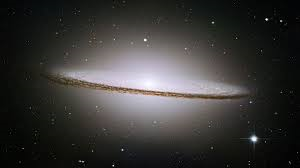In July 2015 Stephen Hawking, one of the most brilliant physicists of our time, spent some time at the University of Leuven in Belgium with the Belgian physicist Thomas Hertog, with whom he closely works together on cosmology. Kathleen Cools, a well-known Belgian journalist, followed Hawking during his visit and had a two hour interview with him.
Stephen Hawking: “Philosophy is dead.”
At their very first meeting, Hawking was curious to know whether Kathleen Cools, the journalist who was going to interview him, had a science background. When she told him she had studied philosophy, almost apologetically adding “That’s not a real science, I guess”, he promptly replied: “I said: philosophy is dead. [pause] Maybe not quite dead.” [1] Later on, during the interview, Cools came back to him about his earlier statement “Philosophy is dead” and asked him: “Can we ever do without philosophy, because it helps people to ask the very old and important question of Socrates ‘How should we live? What is the good life?’”. Hawking gave her the following answer:
“Philosophers used to give the answer. But philosophers have not kept up with modern science. It is scientists who now add to the advancement of human understanding.” [2]
This is reminiscent of The Grand Design (2010), in which Hawking (together with Leonard Mlodinow), never afraid to rock the boat, wrote:
“Philosophy has not kept up with modern developments in science, particularly physics. Scientists have become the bearers of the torch of discovery in our quest for knowledge.” [3]
Although Hawking is known for his witty humor, he seems to be dead serious on this subject and, as the Belgian documentary clearly shows, he still firmly adheres to this view.
Fluttering the philosophical dovecotes
Needless to say, this bold statement made quite a stir and fluttered a lot of philosophical and theological dovecotes, some of which at best reproached Hawking of making self-refuting philosophical assertions, at worst scorned him as downright philosophically and theologically illiterate.
Be that as it may, many scientists simply do not see any reason anymore to be interested in most of the debates that are nowadays classified under the label ‘philosophy’. To paraphrase an Arab proverb: the dogs bark, but the caravan of science moves on.
This evolution didn’t leave the philosophical community unstirred. There is an increasing support among scientifically oriented philosophers (and, who knows, possibly even some scientifically oriented theologians?) for the idea that the days of metaphysics as a quest for a priori truths about reality are definitely over and that the only viable source of objective knowledge about reality is science (which boils down to a posteriori empirical evidence combined with mathematics). A view which I deeply support.
Fundamental physics rules
One of the figureheads of this turn to science in philosophy is James Ladyman, both a physicist and a philosopher of science. [4]
Ladyman advocates a radically naturalized metaphysics centered around empirical verifiability in which fundamental physics takes the driver’s seat. Fundamental physics is like the rules of chess: it puts a constraint on the kind of games you can play. Just one example of what this entails, given by the cosmologist Sean Carroll: the idea that some form of consciousness could persist after we die and our bodies decay into their constituent atoms is completely incompatible with the currently known laws of fundamental physics.
“If you claim that some form of soul persists beyond death, what particles is that soul made of? What forces are holding it together? How does it interact with ordinary matter? Everything we know about quantum field theory (QFT) says that there aren’t any sensible answers to these questions.” [5]
A very strange universe
Why do brilliant people like Stephen Hawking and James Ladyman so steadfastly adhere to their scientific perspective on reality? Apart from many other possible reasons, they are both motivated by the profound realization that science, especially fundamental physics, has revealed a very strange universe, very far removed from our everyday, evolutionary-based intuitions. As Hawking puts it:
“Common sense is based upon everyday experience, not upon the universe as it is revealed through the marvels of technologies such as those that allow us to gaze deep into the atom or back to the early universe.” [6]
As a result, both Hawking and Ladyman have become deeply skeptical with regard to the possible role of common sense intuitions about the nature of the universe in the process of scientific discovery.
No need for the supernatural
A second trait which both Hawking and Ladyman share in common is the underlying naturalist idea that there is only one natural reality and that the quest for an explanation of the universe doesn’t require any reference to a transcendent reality “outside” the universe itself.
This idea seems to upset quite a lot of people. Why would that be? Somehow, the idea has taken hold that in order for some religious worldviews to be true, you need to have a kind of supernatural realm next to the whole of natural reality. Accepting any form of ontological naturalism would then be incompatible with these particular religious worldviews.
The more interesting question, though, is: do religions necessarily presuppose a transcendent reality? How would religions look like without the supernatural?
Notes
This blog post was originally published on November 8, 2015, at:
[1] See part 1 of the interview, 04’50’’ ff. You can watch this interview (in English) as part of a two-episode documentary on Stephen Hawking’s visit to Belgium (partly in English, partly in Dutch):
Part 1:
Part 2:
[2] See part 2 of the interview (link in note 1), 07’55’’ ff.
[3] Hawking, S. & Mlodinow, L, The Grand Design, London, Bantam Books, 2010 (repr. 2011), p. 13.
[4] For a concise introduction, see van Biezen, A., A Case for Naturalism, (July 2015), in The Torch of Discovery.
[5] Carroll, S., Physics and the Immortality of the Soul, in Scientific American, May 23, 2011, http://blogs.scientificamerican.com/guest-blog/physics-and-the-immortality-of-the-soul/ (accessed November 7, 2015).
[6] Hawking, The Grand Design, p. 15.

